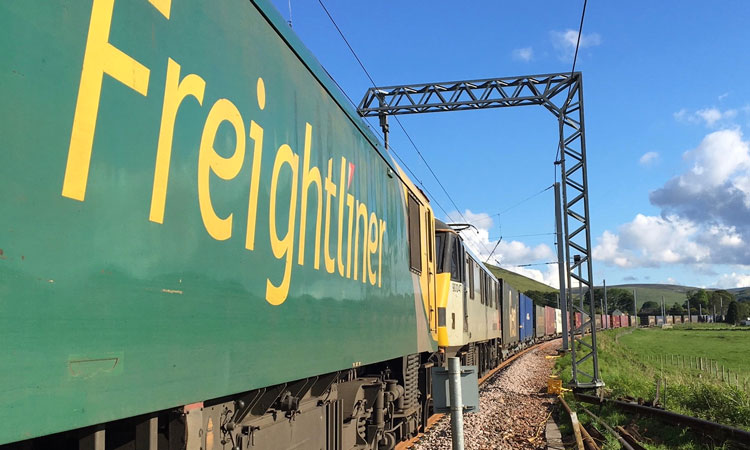Britain’s WCML moves 1m tonnes of critical supplies each week during COVID-19 crisis
Posted: 2 April 2020 | Global Railway Review | No comments yet
Biomass fuel arrives by rail to Yorkshire’s Drax power station, Royal Mail post goes by rail between London and Glasgow, and petrol for West Midlands arrives by rail from Humberside.


Rail freight is transporting 1.13 million tonnes of critical supplies across Britain every week, while the country is locked down to halt the spread of coronavirus. Most of this is being transported along the West Coast Main Line (WCML), and its key spurs.
Every 24 hours throughout the crisis, 188,000 tonnes of critical supplies – including food, fuel and medicine – are being moved by rail between London, Birmingham, Manchester, Liverpool and Glasgow.
Network Rail’s North West & Central (NW&C) region, known also as the ‘Backbone of Britain’ is playing its role in keeping supply lines open and trains moving. Network Rail’s priority is to keep vital supply routes, notably the WCML and its key arteries, open. Critical to this are frontline specialists, such as signallers, without whom the railway cannot operate.
“Our job is to continue moving critical supplies where they’re needed – keeping supermarket shelves stocked, hospital medicine cupboards full, power stations fuelled,” commented Tim Shoveller, Managing Director for North West & Central.
“Our frontline ‘key workers’, including signallers, control room staff and track engineers are the hidden heroes in this national team effort. They are helping NHS medics to save lives and keeping shop shelves stocked.”
Trains are carrying biomass from Liverpool docks to the Drax power station in Yorkshire, as well as petroleum from Scotland to Dalston in Cumbria and from Humberside to Kingsbury Oil Terminal in the West Midlands. Royal Mail trains are continuing to take parcels and post between Wembley and Shieldmuir, Glasgow.
As Scotland does not have any deep-sea ports, it relies on freight services through NW&C to keep its shops stocked. Every 24 hours, 18,500 tonnes of bananas, pasta, toilet paper and other essentials pass over the English-Scottish border at Gretna in freight trains.
Freight companies are looking at how they can reconfigure the trains in order to get more containers per train to meet a forecast rise in demand over coming weeks and months, as the pandemic goes on.
Maggie Simpson, Director General of Rail Freight Group (RFG), said: “The rail freight industry is working flat out to make sure essential supplies are available on supermarket shelves, that the lights stay on and that the warehouses have all the goods we need for online shopping. It is a real testament to all our staff, and those at Network Rail and across the railway for keeping up with changing demand and helping the whole of the UK in these difficult times.”
Related topics
Cargo, Freight & Heavy-Haul, Coronavirus/COVID-19, The Supply Chain, The Workforce







